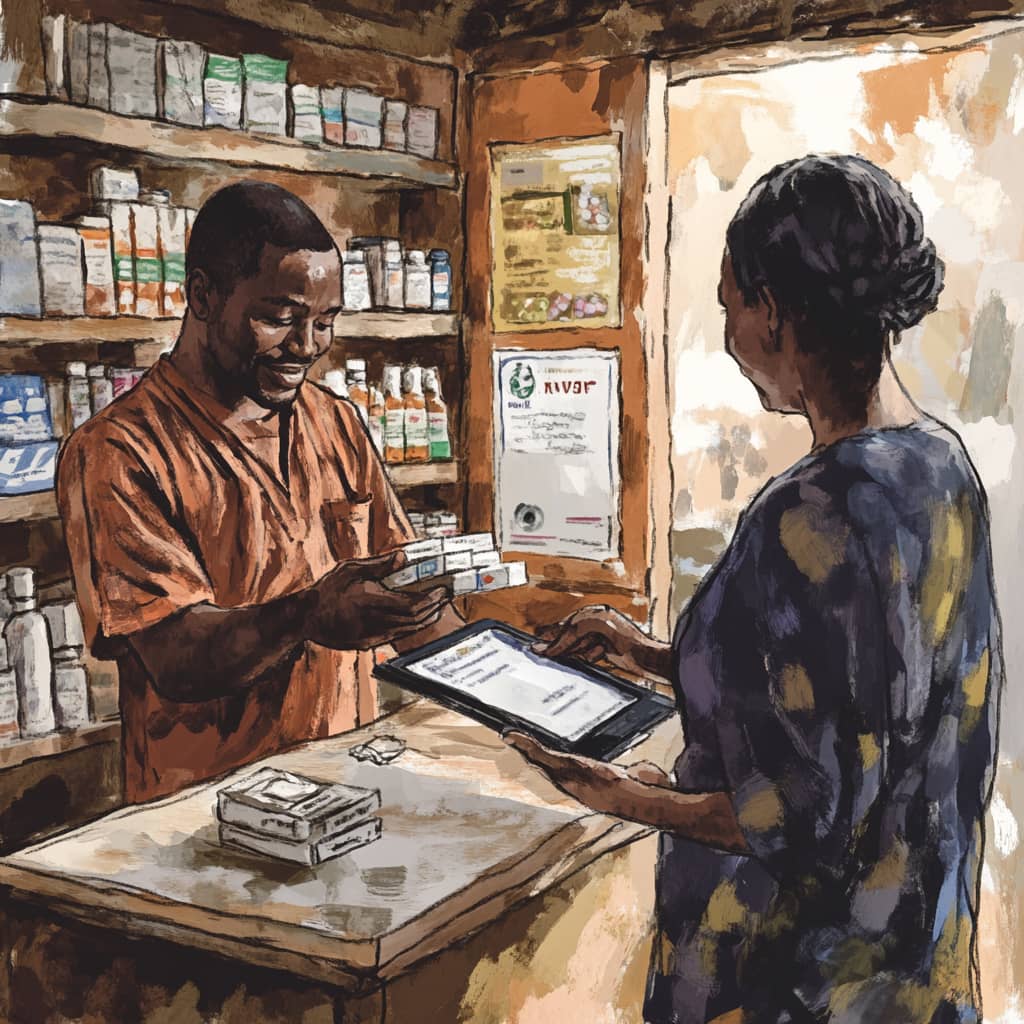PRIVATE PHARMACIES: THE MISSING LINK IN NIGERIA'S HIV TREATMENT CRISIS.
BACKGROUND: WHEN THE LIFELINE SLOWS DOWN
The recent halt in U.S. funding for HIV programs has created significant ripples across the health systems of sub-Saharan Africa.
In Nigeria, public HIV programs, formerly supported by PEPFAR (the U.S. President’s Emergency Plan for AIDS Relief), are beginning to feel the strain. Treatment sites now face extended refill intervals, erratic antiretroviral (ARV) supply, and, in some cases, drug rationing.
According to Development Aid, these U.S. funding cuts have disrupted essential logistics and procurement chains, impacting clients and community-level health workers.
Even Nigeria’s National Agency for the Control of AIDS (NACA) has acknowledged potential slowdowns in program delivery, citing how global funding freezes could undermine decentralised care (where services are brought closer to people) and complicate adherence tracking.
A WIDENING TREATMENT GAP:
People living with HIV (PLHIV) in Nigeria, especially in remote or underserved areas, are increasingly turning to private pharmacies to access lifesaving Antiretrovirals(ARVs), drugs used to manage HIV and prevent its progression. Unfortunately, most of these pharmacies lack the infrastructure, specialised training, and trusted ARV supply chains to meet this growing demand adequately.
THE CONSEQUENCES?
-
Inconsistent therapy, which increases the risk of drug resistance, occurs when the virus no longer responds to medication.
-
Exposure to counterfeit or substandard medications, often bought in desperation.
-
Persistent stigma, especially at public clinics, where visibility in queues deters many from seeking regular care.
ONE PHARMACIST’S QUIET REVOLUTION: A CASE STUDY:
Chike runs a small pharmacy tucked behind a bustling market in southeastern Nigeria. Previously, he didn’t stock ARVs, not because people didn’t need them, but because no one openly asked. His clients came for cough syrup, baby formula, malaria kits, but not HIV treatment.
By early 2024, shortages became evident. Public hospitals started turning people away or providing only a week’s supply of ARVs instead of a month.
Chike began receiving quiet, anxious inquiries:
“Do you have anything? Even if I have to pay?”
He was willing but nervous. Without a certified supplier or professional guidance, selling ARVs felt risky.
What if he dispensed the wrong drug?
What if it was fake?
That changed when Retroviral Solutions (RVS) approached him as part of a pilot pharmacy integration project.
They provided:
-
Verified ARV stock.
-
Targeted training for him and his staff on dispensing, confidentiality, and counselling.
-
A digital record and follow-up system for tracking clients discreetly and efficiently.
“I didn’t realise how many people needed this until they started coming every week,” Chike said.
“I’ve become more than just a chemist; I’ve become part of their support system.”
Within three months, Chike’s pharmacy had served over 40 stable clients, many of whom had previously dropped out of formal care.
HOW RVS IS CHANGING THE GAME:
Retroviral Solutions (RVS) is helping to bridge Nigeria’s HIV treatment gap by:
-
Training private pharmacists on ARV dispensing, stigma-free counselling, and patient confidentiality.
-
Connecting them to verified ARV supply chains, eliminating the risk of fake drugs.
-
Creating client-friendly refill points that are discreet, accessible, and safe.
-
Deploying digital tools that track refill patterns and link clients back to national health systems.
This model transforms pharmacies into community-based treatment hubs that extend the reach of HIV care beyond traditional facilities.
Over 200 pharmacies trained in 3 states, with retention rates exceeding 85%.
CONCLUSION: A SCALABLE SOLUTION FOR A SUSTAINABLE FUTURE.
In today’s struggling post-funding landscape, relying solely on overstretched public clinics is no longer sustainable. Empowering private pharmacies isn’t just a workaround; it’s a bold, scalable strategy to ensure consistent, respectful, and community-rooted access to HIV care.
With organisations like RVS (Retroviral Solutions) leading the charge, the distance between need and delivery grows narrower.
Chike’s pharmacy is proof that with the right support, even a modest storefront can become a fortress of health, dignity, and hope.
What if every community had a Chike?
What’s stopping us from empowering 1,000 more?

